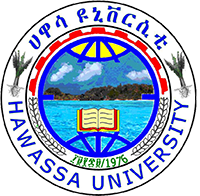Call for PhD and MSc Scholarships as part of Global Methane Hub (GMH) Project – Development of a Feed Ration Formulation Tool.
Background
Hawassa University (HU) is collaborating with University of California, Davis (UC-Davis), the grant holder of the project from the Global Methane Hub, and other partners for the Development of a Feed Ration Formulation Tool relevant for tropical livestock and regions.
The project has been planned to be implemented in 16 countries in Asia and Sub-Saharan Africa namely Vietnam, Thailand, Indonesia, the Philippines, India, Ethiopia, Cameroon, Gabon, Equatorial Guinea, Chad, DR Congo, Central African Republic, Nigeria, Benin, Togo, and Burkina Faso. Dr Prof. Ermias Kebreab of UC-Davis is the grant holder and overall leader of the GMH project.
The Government of Ethiopia has recently prioritized increasing livestock production and productivity to enhance the national economy and food security by launching the “Yelemat Tirufat” or Bountiful Basket) Project. Globally, the safe operating zone or planetary boundary has been exceeded for greenhouse gases (GHG), biodiversity and biogeochemical flows. In this situation, the major challenge is how to produce sufficient food without compromising planetary health. The project aims to address this challenge by increasing animal productivity through improved animal nutrition in order to improve food security and reduce the GHG emission costs of food production. The Project is closely aligned with the Climate Resilient Green Economy (CRGE) and other government policy priorities.
The project can accommodate one PhD and two MSc students at Hawassa University. Supervision of the graduate students will be done jointly by pertinent scientists from the collaborating institutions.
- PhD Scholarship Opportunity
There is one PhD opportunity in this component of the project. The focus of the PhD work will be sampling and analysis of prioritized feed resources for development of feed composition table, participate in fielding testing of leading NIRS devices in collaboration with partner institutions, use the GreenFeed machine to assess animal performance and GHG emission in animals fed different energy levels to help in the development, refinement and integration of nutrient requirement models. The PhD student is expected to play very active role in refining the research design in line with the local contexts, data collection, data summary, analysis and write up of the findings of the Project to be implemented in Ethiopia.
Required qualifications of the applicant: MSc in Animal Nutrition, Animal Science, Animal Production or closely related disciplines, good research experience and publication track records, excellent academic performance.
Methodological competence of the applicant: The candidate should have experiences in laboratory, animal handling and field based research.
- MSc Scholarship
There are two MSc scholarship opportunities in this component of the project. The students will be responsible for feed sampling and analysis, assist in field testing of the NIRS device, engage in animal performance evaluation study using the Green-Feed machine, and contribute to the validation of the ration formulation tool.
Required qualifications of the applicant: BSc in Animal Science or Animal Production, very good performance in MSc and BSc course work, and good command of oral and written English.
Methodological competence of the applicant: The candidate should have relevant experiences related to animal nutrition laboratory and animal handling and management.
General Information for Applicants
Required Documents: concept note, letter of motivation, CV, academic credentials (MSc, BSc and any other), two recommendation letters and work experience
Selection criteria: as per the HU criteria and project team checklist
Project sites: Hawassa University is the main site of the project activities although the feed sampling and analysis requires extensive travel to collect potential feed samples for analysis.
Other conditions: The applicants must be registered as PhD or MSc students, as the case may be, at Hawassa University at the time of application. PhD and MSc students registered at other sister universities in Ethiopia may also be considered, if they are found to be more fit and competent for the position.
Benefits: The research expense of the successful candidates will be fully covered as part of the project activities. In addition, the candidate will be paid a modest stipend from the project.
Supervisor and Institute: Professors/scientists from collaborating institutions
Deadline for submission: Before 5:00 P.m. on April 15, 2024
Place of submission: Office of Global Methane Hub (GMH) Project Coordinator, School of Animal and Range Sciences, College of Agriculture, Hawassa University (Contact: Prof. Adugna Tolera; Tel. 0911-721358; Email: This email address is being protected from spambots. You need JavaScript enabled to view it.)



